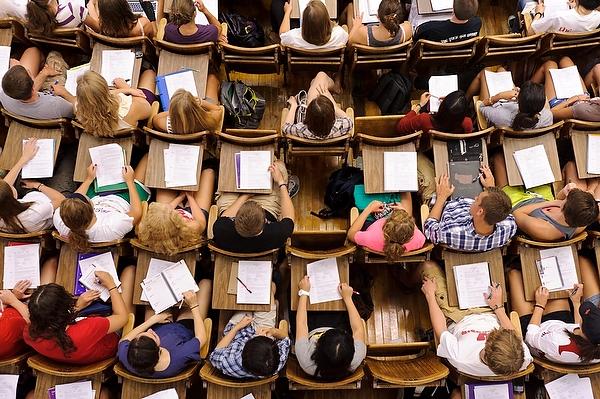It’s happened to everyone — that little T-Rex icon comes up on the computer screen, and in bold letters, it reads, “No Internet.”
This might not have been as much of an issue for the past generations of Badgers. But in the age of technology and online learning, a reliable internet connection on campus is something students and faculty alike can’t do without.
During the past few weeks, the University of Wisconsin’s campus Wi-Fi, UWNet, has been plagued with widespread connectivity issues and even full-scale outages leaving students and faculty without internet. Throughout the past year and a half, instructors and students at UW have been forced to adapt to education in the midst of the COVID-19 pandemic — an almost entirely online learning environment. The fall semester of 2021 promised a fresh start to college students everywhere and a return to mostly in-person education.
Yik Yak offers positive comedic community to students despite controversy
But some practices used by UW during virtual learning still prove to be effective in the increasingly post-COVID-19 world. Live streaming or recording lectures allows students to stay home in the event of illness, as well as the ability to go back and re-watch lectures to better understand the content. Furthermore, Canvas is a fantastic tool for students and professors to communicate with each other, turn in assignments and access readings and other class materials.
There are several advantages to holding onto some of the methods and systems used for learning during COVID-19, but they all have one thing in common — they need a good internet connection to work. This is an area the university seemed to be struggling with during the first few weeks of classes. Students, particularly those living on campus who rely on the school’s Wi-Fi constantly, have been finding it difficult to complete classwork and submit assignments when the Wi-Fi often just doesn’t work.
UW freshman Dana Bubow living in Ogg Residence Hall has experienced multiple instances of either unstable or non-existent internet connection. Being a freshman and brand new to the college environment can be stressful enough on its own, so the added inability or difficulties in completing schoolwork can increase student stress levels.
What’s worse is some professors have been fairly inflexible when it comes to students being unable to do work because of connectivity issues. Bubow spoke of an email she received from one of her professors. In it, she said he advised students to use a hotspot for internet and said Wi-Fi outages would not be an acceptable excuse for incomplete or late assignments.
“Half the class came the next day and was like ‘I don’t have a hot spot,’” Bubow said. Her professor’s answer was simply, “You should have improvised.”
Heightened student marijuana use could affect campus culture, points to national trend
Requiring students to rely heavily on an internet connection for school and then not providing a reliable connection — furthermore penalizing students when they are unable to complete work — is not only unfair to students but adds to the stress of student life. What if a student doesn’t have a hotspot or can’t afford one? Does this mean they should suffer academically?
Fortunately, many other professors have been understanding. Unfortunately, it may be in part because they know it’s an issue they have been affected by too. Nicholas Pedriana, who is a sociology professor at UW, was giving a lecture to his Sociology 134 class on Sept. 23.
During his lecture, Pedriana tried to play a short video for the class. The Wi-Fi had already previously been spotty and unreliable that day. As a result, he had already been forced to use his cellular data to access the internet and slides for his class.
Inevitably, his connection failed and the video wouldn’t play. After waiting for a couple of minutes for the video to play, Pedriana ultimately had to give up saying, “I guess I gotta turn this off, too bad this is a really cool video … This helps me really solidify what I’m thinking, and what I want to talk about today. But we have no internet…”
The lack of a reliable internet connection is not just making it difficult for students to do homework and online assignments, but it’s also impacting them during the school day. It’s taking away a tool faculty rely on to effectively teach and students rely on to effectively learn. Furthermore, the fact UW is a well-funded Big Ten school makes the lack of this basic modern necessity both unacceptable and unnecessary. Upgrading to a better Wi-Fi service and expanding the signals range to ensure students and faculty can perform well is a responsibility the university needs to uphold.
The students and faculty at UW need to know they can rely on the university to provide them with the tools they need to succeed in their education in an increasingly internet-centered world — this requires a solid internet connection.
Samantha Stidham ([email protected]) is a sophomore majoring in journalism.














